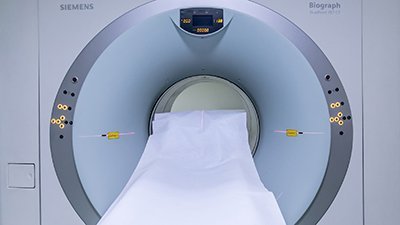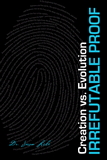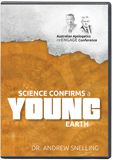A Philly Story
How would you like to fly in an airplane produced by chance random processes—no intelligence involved?
How would you like to fly in an airplane produced by chance random processes—no intelligence involved?
Well, I challenge the terribly confused writer of the editorial entitled “They Have Designs On Darwin” from the Philadelphia Daily News (www.Philly.com, February 1, 2005) to do just that! After all, if she really understood what she was writing in her editorial, that’s a flight she might think twice about attempting!
For me, and for all the flying I do, I want to ride in a plane that’s been carefully designed and repeatedly tested by human intelligence—based in a real world with operating laws we can trust!
This has nothing to do with the belief that life evolved by natural processes.
Now certainly the Wright brothers used trial and error in constructing their flying machines—but such trial and error entails repeatably doing things in the present involving intelligent design. Of course, this has nothing to do with the belief that life evolved by natural processes.
If any airplane manufacturer applied Darwinian evolutionary philosophy to its engineering, well, they would be out of business (actually, they wouldn’t even get into business in the first place).
Aerodynamics expert Prof. Andy McIntosh of England has shown very clearly how flight requires precise design, and that the design of birds is still giving us lessons today about flight (see his article 100 Years of Airplanes and his DVD The Intricacies of Flight).
In yet another slam against creationists (which seems to be the “in” thing for many secular journalists these days), the Philadelphia Daily News chief editorial writer, Carol Towarnicky (and in the same vein as ultra-leftist, anti-Christian journalists like Maureen Dowd of the New York Times), wrote with the same gross misunderstanding of what the words “science” and “evolution” mean that is currently plaguing the secular world—making what I could only say are quite silly statements about airplanes, medical technology, evolution and so on. ( See “Full of Sound and Fury; Signifying Nothing”.)
Quite often, if you don’t have any substance to your arguments except generalizations (that are grossly inaccurate), you also resort to ad hominem arguments (i.e., “name calling”), stating things like: not believing in evolution but believing in creation is “stupidity.” Fortunately for them, such journalists were not around in the days of such epitomes of so-called stupidity as Newton, Pascal, Maxwell, Pasteur and the other {$ get_urls "26976" alt="creationist founders of modern science" %} (and many of whom were contemporaries of Darwin and rejected his views)!
Towarnicky states, “Modern medicine is built on the truths of evolutionary biology.”
Of course, she hasn’t the slightest qualifications in medicine, unlike Dr. Tommy Mitchell of AiG–U.S., a medical doctor, who has already firmly refuted this claim at Evolution and Medicine.
For further confirmation, I called Dr. David Menton, Associate Professor Emeritus in Anatomy at Washington University School of Medicine (one of the leading medical colleges in America), and someone who was once awarded the school’s “Professor of the Year” award.
I read the Philly editorial to him (by the way, he is an AiG speaker who accompanies me at many teaching conferences) and asked for his comments. He replied:
If evolution were thrown out of consideration, it would have no negative impact [in medicine]—it plays no necessary role in either the teaching or practice of medicine.
This is not to imply it’s not believed by most or that it doesn’t come up. It does come up from time to time, but from the lectures I’ve attended, when it does come up, it’s mentioned in passing as almost a confession of faith. It doesn’t contribute materially to the topic.
The professors can’t spend too much time on evolution, as they have too much real medical knowledge to get across to the students. Spending a lot of time on evolutionary speculations just wastes time. If you remove evolution, there’s nothing in the whole realm of empirical science that you can’t pursue.
Dr. Menton added that he could give numerous specific examples where, in fact, evolutionary ideas have actually impaired our understanding of biology and medicine. For instance Dr. Menton states:
In the realm of medicine, many evolutionists say that the retina of the vertebrate eye in general is “upside down,” which means the light-sensitive cells face away from the light rather than at the top facing the light. If there were a designer, you would expect it to be made “properly,” with the cells facing forward. In evolution you expect things to be junk—to be poorly and inappropriately constructed. On the other hand, if there were a Creator you would expect the human body—including the retina—to be optimally constructed.
Before Dr. Menton continues and more fully addresses the “proper” design of the eye, I want to mention that that evolutionists like Richard Dawkins (who has no qualifications in ophthalmology or optics) scoff at the idea that God created the eye. He states:
Any engineer would naturally assume that the photocells would point towards the light with their wires leading backwards towards the brain. He would laugh at any suggestion that the photocells might point away from the light … . (The Blind Watchmaker, pp. 93-94, 1986.)
Dr. Menton said that on the basis of evolution, one would have no real reason to study why the retina is “upside down”—after all, that’s what evolution did. However, he says:
Scientists who ignored the claims of evolutionists have looked to this nonintuitive arrangement of the retina and have found it to be optimally organized. When you do this, you find out all sorts of compelling reasons why this arrangement is optimum, which enables one to have a better understanding of the mechanisms involved.
(For more details, see his well-illustrated explanation in his DVD The Hearing Ear and the Seeing Eye and the detailed article by ophthalmologist Dr. Peter Gurney.)
Thus, what you find is really what you would expect to find on the basis of an intelligent designer-not chance random processes.
Dr. Menton continued, “The teaching of Haeckel’s embryonic recapitulation, now known to be a fraud, actually put back embryology nearly 100 years. Haeckel’s faked diagrams are still in many public school textbooks.”
Adam S. Wilkins, who wrote the introduction to a special issue of BioEssays (Biology Journal) on “Evolutionary Processes,” Vol 22, no. 12, page 105, Dec. 2000, made this statement, which fits exactly with what Dr. Menton said:
The subject of evolution occupies a special, and paradoxical, place within biology as a whole. While the great majority of biologists would probably agree with Theodosius Dobzhansky’s dictum that “nothing in biology makes sense except in the light of evolution,” most can conduct their work quite happily without particular reference to evolutionary ideas. “Evolution” would appear to be the indispensable unifying idea and, at the same time, a highly superfluous one.
So, we have a challenge for Carol Towarnicky: please give me one example where an engineer (of any sort—electrical, civil, etc.), a biochemist, or a medical technician would not have been able to develop technology or carry out their duties if they didn’t base it on a naturalistic (i.e., evolutionist) belief concerning origins! (If you are a reader of her Philadelphia newspaper, please consider forwarding this web article to her, along with a respectful cover note.)
And please don’t give us again the example of “germ resistance” that you gave in your editorial for the medical technician’s part—you need to first read articles on AiG’s website to understand what is going on here. None of the mechanisms has anything remotely to do with “goo-to-you” evolution.
Certainly, some of these mechanisms involve mutations and natural selection (note that the creationist Edward Blyth, though, thought of natural selection 25 years before Darwin). However, properly understood, these actually illustrate that there is no mechanism to change one kind of creature into another—what is happening only involves either sorting already existing information or eliminating it, and occurs within each kind of animal (and plant).
The trouble is that Towarnicky, like millions of others, has not been taught to understand “science” correctly. She can’t distinguish between “operational science” (i.e., investigating cells, studying genetics, building airplanes, testing resistance in bacteria and so on) and beliefs about the past. She’s obviously been indoctrinated by an education system and media (like millions of others) to think that the belief aspect of Darwinian evolution is the same as operational science—and that’s simply not true.
I do feel for these people, and want so much to get the truth to them. In a way, they don’t know what they’re saying because they have been brought up in schools that have locked God out and won’t even allow students to be taught correctly about how to think concerning science.
Next time you go to the doctor, take medicine or fly in an airplane, be thankful that scientists using operational science (repeatable, testable science), without having any basis whatsoever in naturalistic evolution, produced the technology or product that is involved.
To read the Philadelphia Daily News article, go to They Have Designs On Darwin.
Recommended Resources

Answers in Genesis is an apologetics ministry, dedicated to helping Christians defend their faith and proclaim the good news of Jesus Christ.
- Customer Service 800.778.3390
- © 2024 Answers in Genesis








